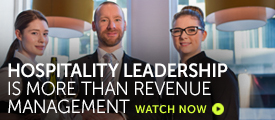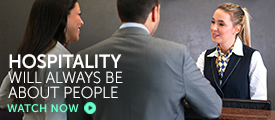According to STR’s July 2016 Pipeline Report, Greater London has the most ‘rooms in construction’ in Europe, with 5,400 rooms in 32 hotels. PwC reports that the UK accounted for about 60% of European M&A volumes in 2015. The UK continues to be a strong market, although it is not without its complications. The EU referendum and the introduction of the National Living Wage have been two issues affecting the UK’s hospitality industry this year.
In these videos hospitality experts discuss business in the UK.
Figures from STR for Q2 2016 show that the UK has experienced steady results across three metrics: occupancy (-0.7% to 78.9%), ADR (+1.7 to GBP89.71) and RevPAR (+1.0% to GBP70.82). STR analysts say it is still too early to quantify the impact the vote for the UK to leave the European Union has had or will have on hotels and the European hotel industry as a whole.
Since April this year workers over 25 in the UK have been entitled to a National Living Wage of £7.20 per hour as compared to the minimum wage (previously applied to anyone 21 and over) of £6.70. This is great for the many minimum wage employees working in hospitality in the UK, but has also meant an extra budget consideration for managers. Predictions from PwC last year showed that this National Living Wage would increase the wage bill for Hospitality and Leisure by £2.2m in 2016 and £13.2m by 2020.
If you’ve been sent to this page and you’re not yet on the circulation list to receive these regular briefings and you would like to sign up, you can do see here. It’s free.
Video clips produced by ybc.tv for the Hospitality Channel, including interview from industry conferences such as the IHIF conference as well as specific Hospitality Channel shoots.









